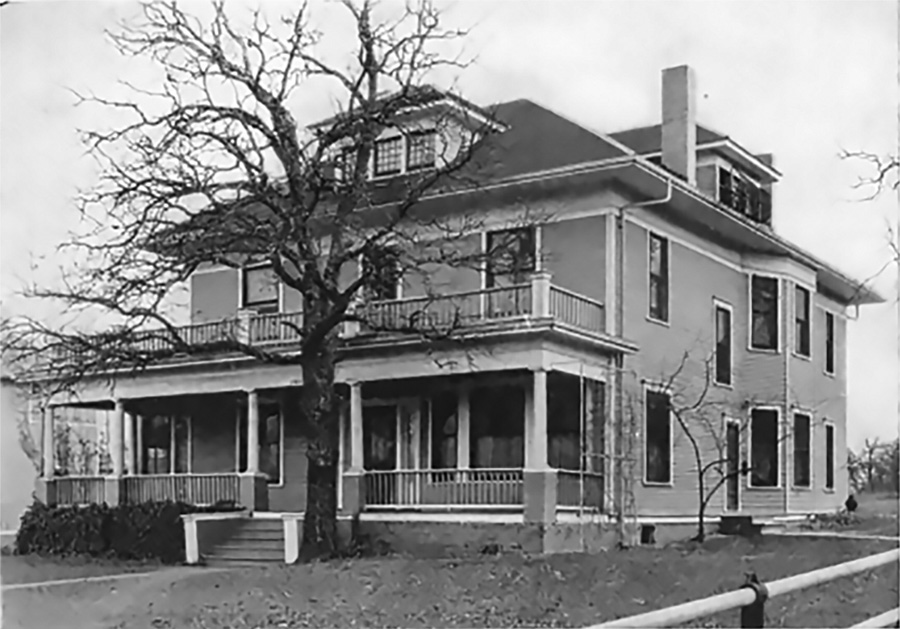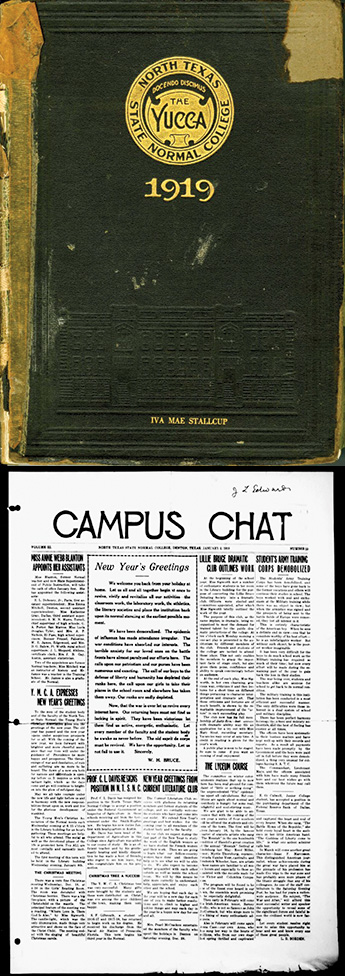
In its 130-year history, UNT has overcome its fair share of challenges -- which now includes two pandemics. Faculty, staff and students have united to face COVID-19, just as they did a century ago, when the Spanish Influenza began to ravage the U.S. and the rest of the world.
Much of the history of the Spanish flu, which lasted from January 1918 to December 1920, can be traced through the university's Campus Chat student newspaper. One of the earliest mentions is in an October 1918 edition of the paper, headlined "Conditions Much Improved," which chronicled what turned out to be the start of the flu's second wave: "There have been a number of the students and faculty ill," the article states.
By January 1919, it was clear the pandemic had left many activities in flux, including the Yucca annual, the completion of which would require "the cooperation of the entire student body." There also were increased pleas to ensure that the Normal College Sanitarium Fund allowed every faculty and student to visit a physician so as not to become the "next victim of the dreaded flu."
That same month, the paper took a lighter approach by reprinting a poem that first appeared in the Cincinnati Enquirer, which began: If you have a tummy-ache/It's the Flu!/If you're weary when you wake/It's the Flu!/ Is your memory off the track?/Is your liver out of whack?/Are there pimples on your back?/ It's the Flu! (See another flu-related poem printed in the Campus Chat below).
By February 1920, following months of notices regarding students and faculty who were "worried" with influenza, cases appeared to decline -- only a few of the Sanitarium's (pictured above) 20 beds were occupied.
